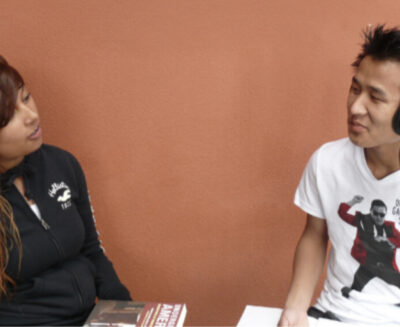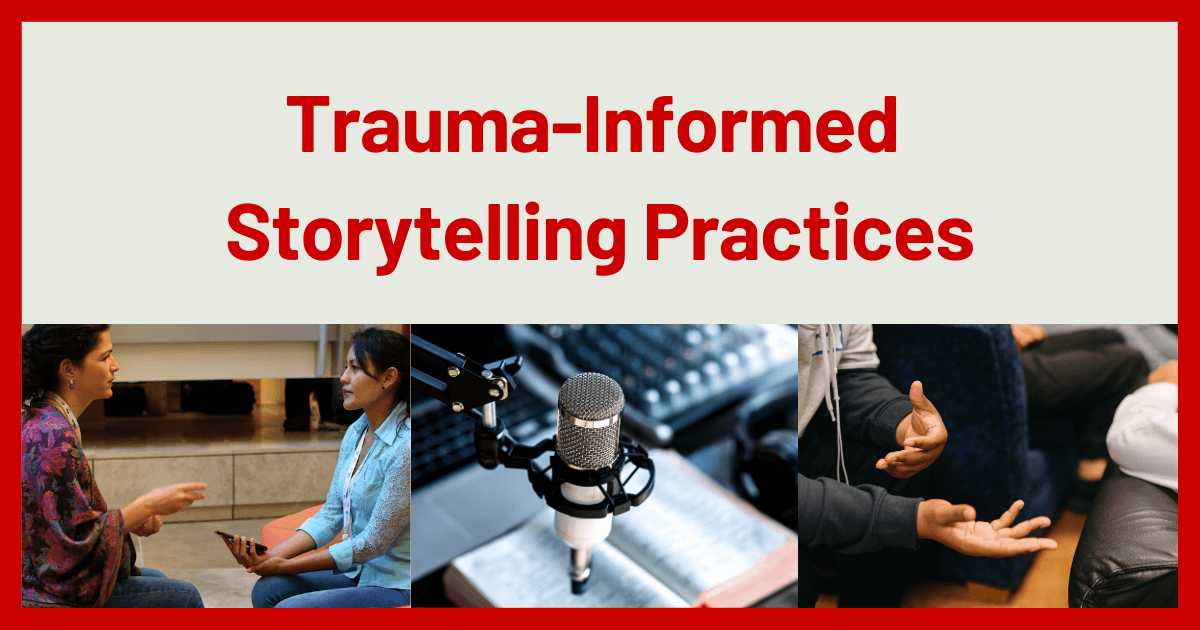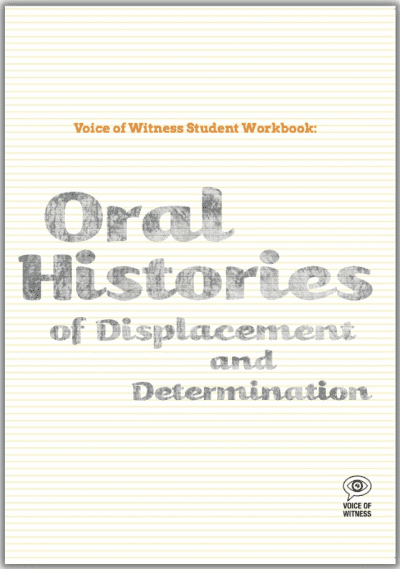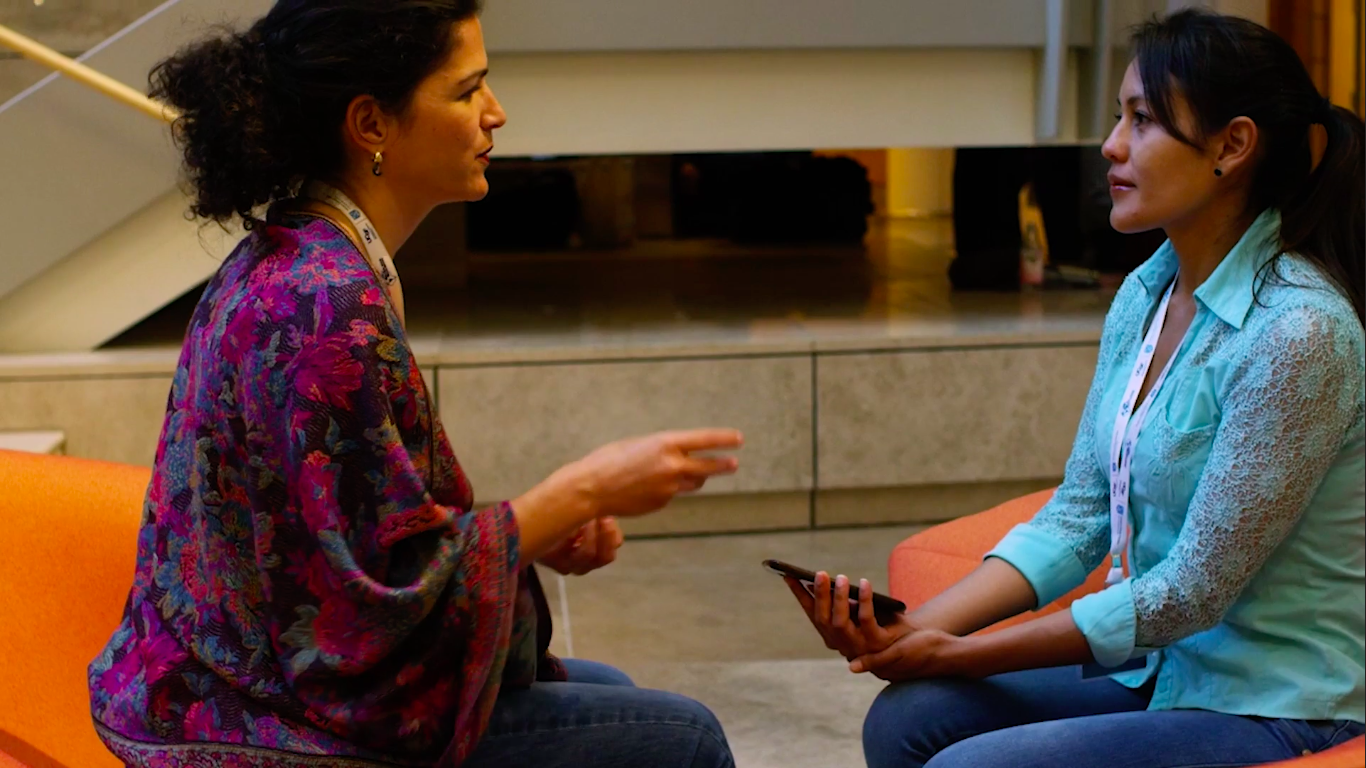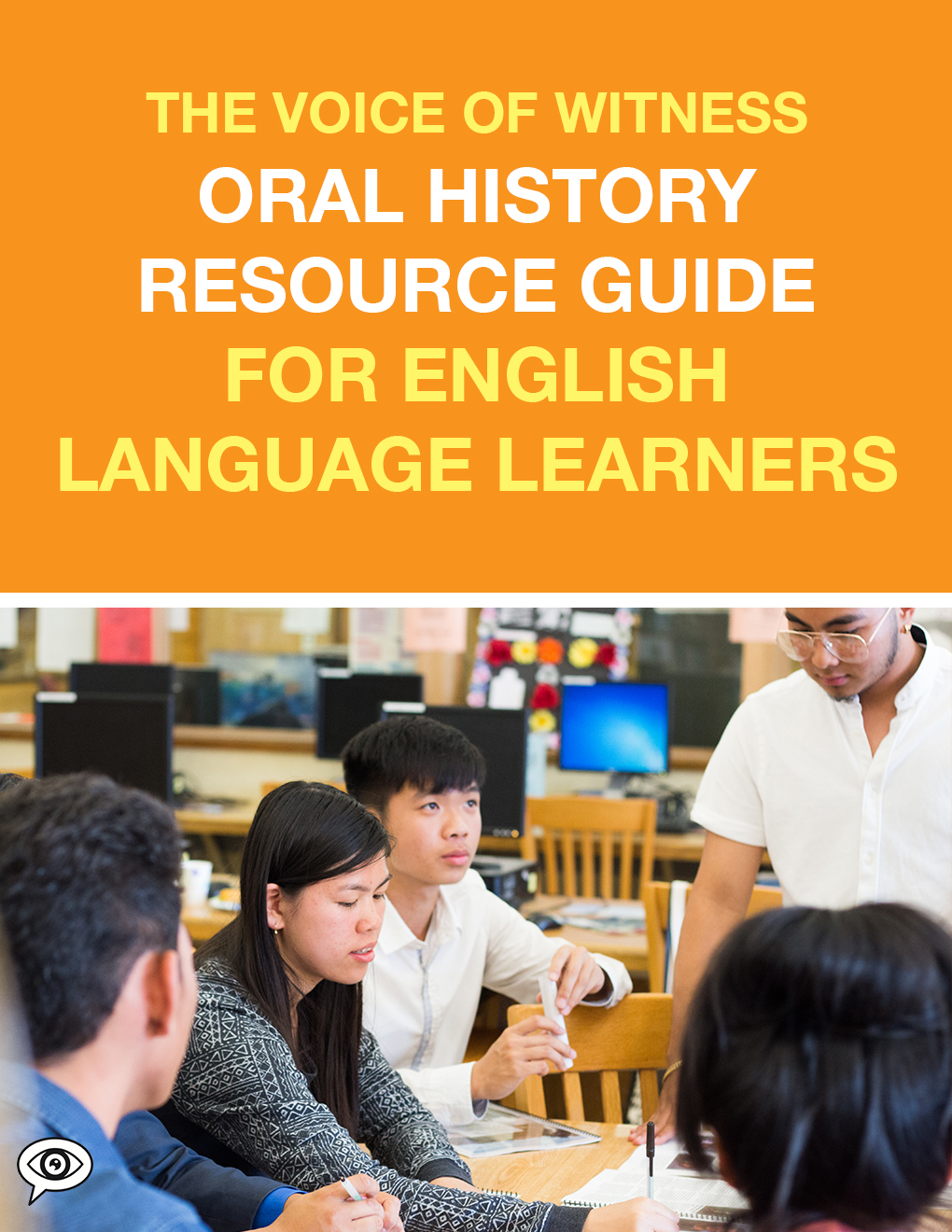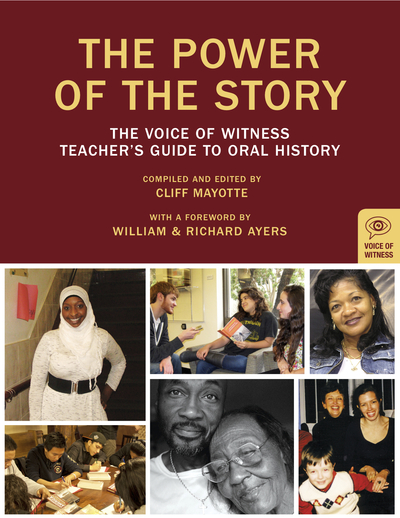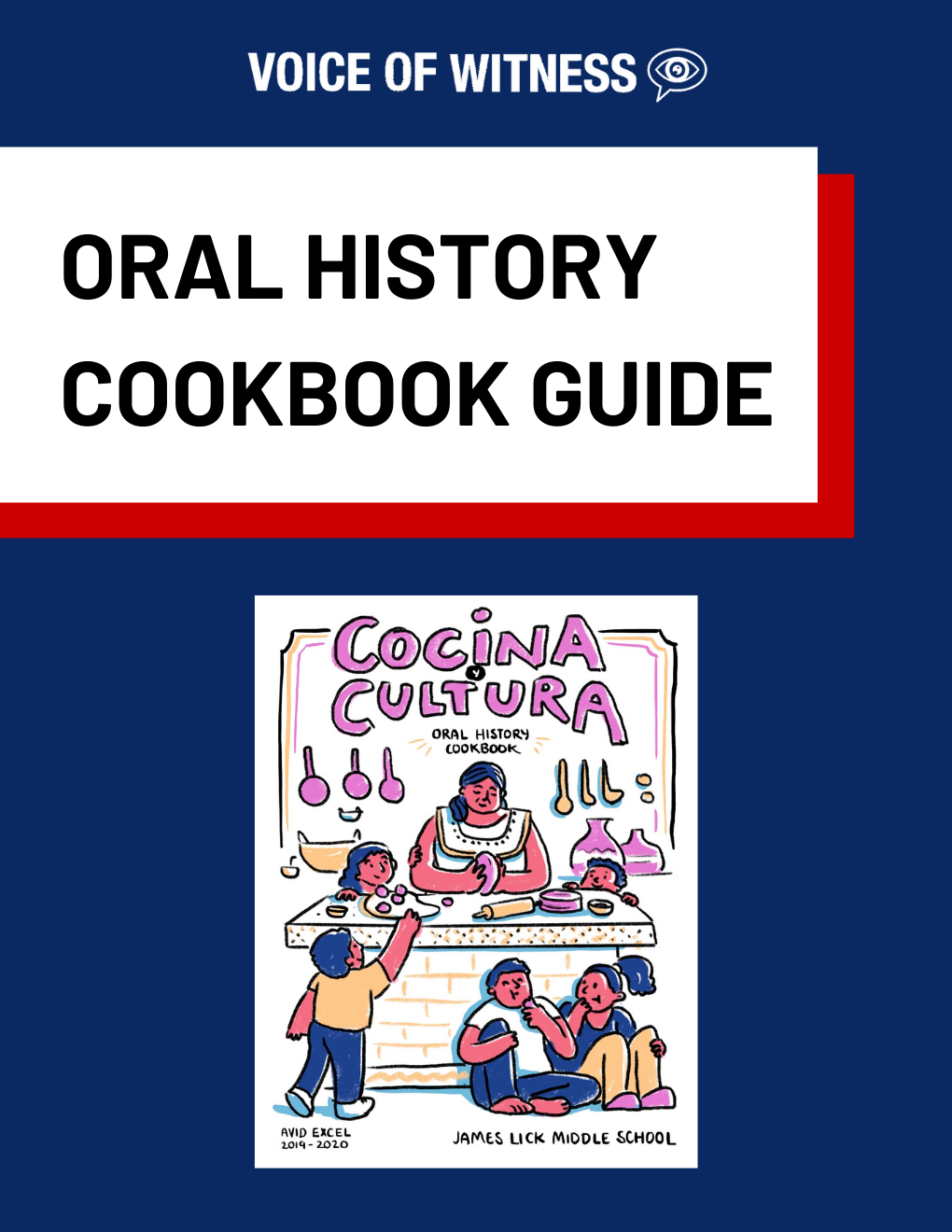Oral history is a valuable tool for education, community building, and advocacy. Sharing first-person stories from people—in their own words—illuminates issues and events in a powerful way.
Voice of Witness creates oral history resources to support individuals, organizations, and classrooms with ethical storytelling, community-based oral history projects, and human rights education. We have seen firsthand how they resonate with participants of all kinds, inspiring connection and belonging, empathy, and community engagement. All lesson plans are Common Core-aligned and feature social-emotional learning practices.
Learn more about the benefits of oral history and the impacts of oral history education.
Resource Type
Resource Topic
Grade Level
Keyword Search
VOW’s Trauma-Informed Storytelling Practices
Here are 10 key trauma-informed practices to create ethical, supportive spaces for storytelling and personal narrative. While our approach is focused on oral history, these principles apply to many types of community-based, interview-based, or relational work.
Guides and Toolkits • Higher Ed
Voice of Witness Student Workbook: Oral Histories of Displacement and Determination
This VOW Student Workbook features two oral history narratives in an immersive, accessible format. Free lesson plans are also available.
Guides and Toolkits • Lesson Plans • Grades 3-5 • Grades 6-8 • Grades 9-12
Oral History Podcast Guide
This guide helps educators create a podcast project for their classroom, where students will conduct and edit oral history interviews.
Guides and Toolkits • Grades 6-8 • Grades 9-12
Benefits of Oral History
What is the value of oral history? This resource page explores the transformative power of oral history-based storytelling and its many applications. Goals and outcomes can include education, advocacy, healing and connection, community building, ethical storytelling, and narrative change.
Guides and Toolkits
Democracy and Civic Engagement Lesson Plans
This curricular unit on democracy and civic engagement provides students with an accessible way to learn more about this topic through the lens of personal narrative from a range of voices. These stories create a picture of democracy that goes beyond political parties or voting, making space for students to view it in relation to community power, voice, belonging, and resistance.
Lesson Plans • Grades 6-8 • Grades 9-12
Oral History Resource Guide For English Language Learners
Voice of Witness’s education program develops curriculum that directly supports students in migrant, multilingual, and English Language Learner communities. This guide contains activities, handouts, and reading strategies to make oral history accessible to students at all language levels.
Guides and Toolkits • Grades 3-5 • Grades 6-8 • Grades 9-12
The Power of the Story: The Voice of Witness Teacher’s Guide to Oral History
This comprehensive guide allows teachers and students to explore contemporary issues through the transformative power of oral history, and to develop the communication skills necessary for creating vital oral history projects in their own communities.
Guides and Toolkits • Grades 6-8 • Grades 9-12
Oral History Cookbook Guide
Creating an oral history cookbook provides students with the opportunity to connect with their own cultural knowledge while building speaking, listening, reading and writing skills. This guide helps educators facilitate an oral history cookbook project.
Guides and Toolkits • Grades 3-5 • Grades 6-8 • Grades 9-12

